“The most flexible studio reverb ever created in a pedal format”: Meris changed the delay game with the LVX – can its all-new MercuryX do the same for reverbs?
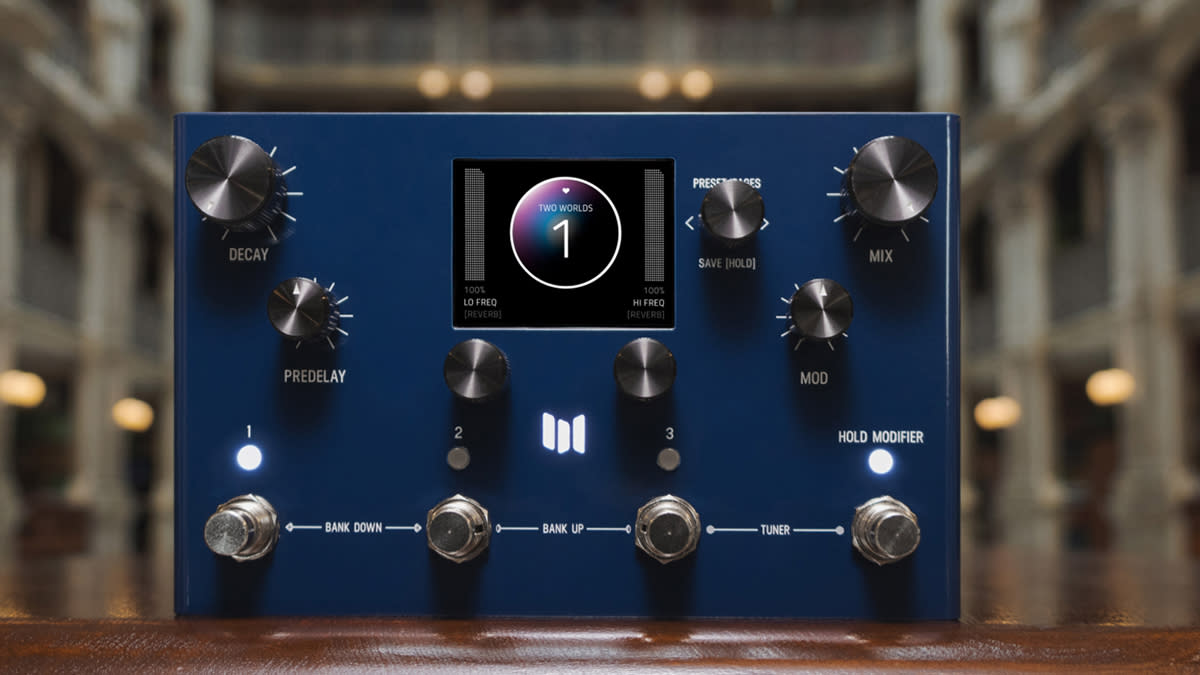
Meris has made a play for producing the best reverb pedal in the market by unveiling the MercuryX – an all-new modular reverb system that the boutique effects specialist has labeled the “most flexible studio reverb ever created in a pedal format”.
Without beating around the bush, it looks to be another significant release from the brand. Last year, Meris – which was founded by ex-Strymon and Line 6 employees – changed the delay pedal game with its LVX Modular Delay System, which we concluded to be “the most advanced delay pedal ever built” in our five-star review.
Could the MercuryX be set to have a similar impact on the reverb realm? Well, competition is high, but if the spec sheet is anything to go by – and with Meris’ recent successes in mind – it’s very possible indeed.
Notably, the MercuryX retains the exact same user-friendly form factor as the LVX, meaning it has four footswitches, four LED buttons, an onboard screen display and seven control knobs to control its myriad functions.
According to Meris, its premier reverb pedal expands on the “heart and soul” of its smaller Mercury 7 reverb, with the MercuryX offering eight custom reverb algorithms, some of which pay homage to a handful of vintage studio rack units.
Specifically, the Ultraplate and Cathedra (as found on the Mercury7) are inspired by the ‘verbs used in Blade Runner, while 78 Room, Plate and Hall take cues from an unnamed studio classic. Spring, Prism and Gravity are new creations unique to the MercuryX.
In other words, there’s a generous helping of reverbs to play with, and while it might not be as many as, say, the Strymon BigSky’s 12 reverb machines, the pedal uses its curated selection effectively: configurable Structures, Types and Processing Elements – which include chorus, vibrato, tremolo and other modulation effects – vow to provide “ultimate customization”.
Moreover, there’s 99 presets organized into 33 banks, a Hold Modifier switch for impromptu parameter tweaks and a Deep Modifier Section that lets players route control signals in a number of expansive ways.
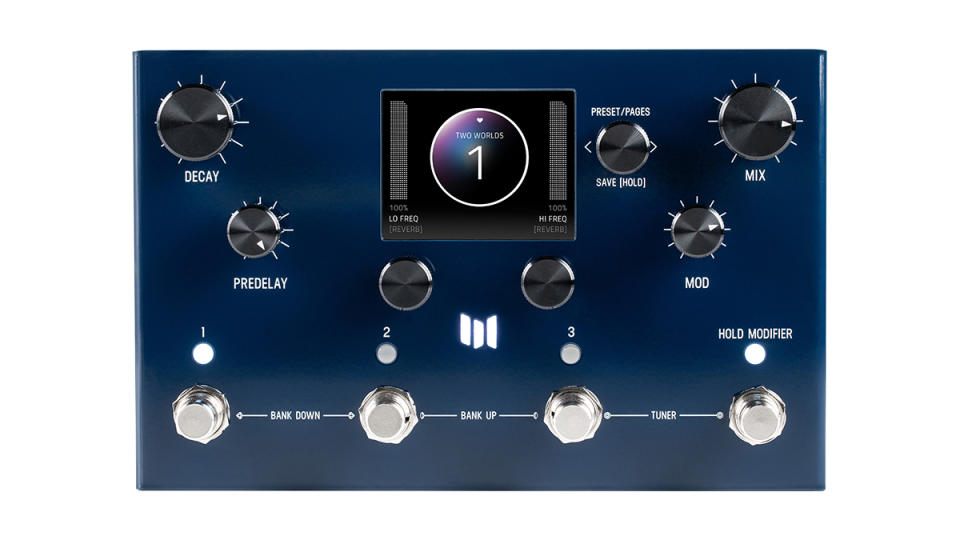
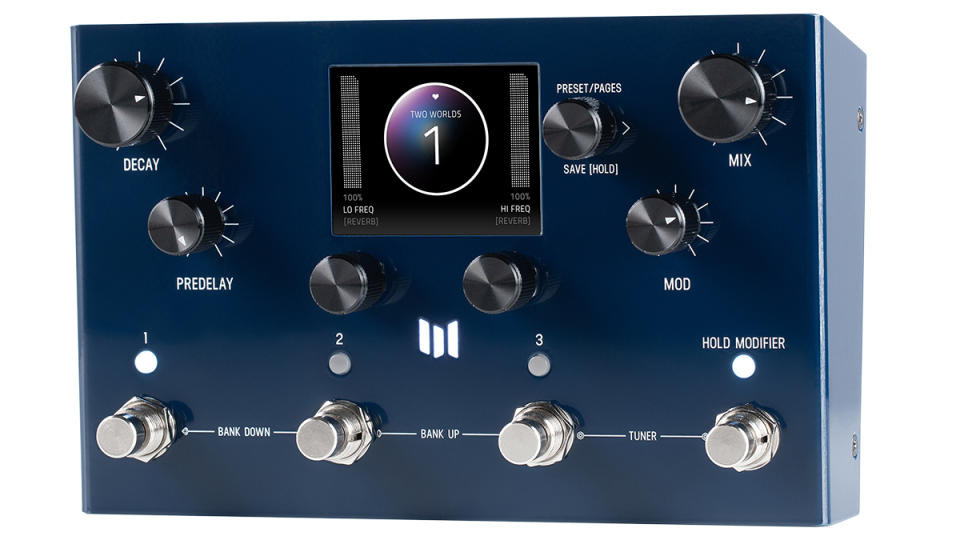
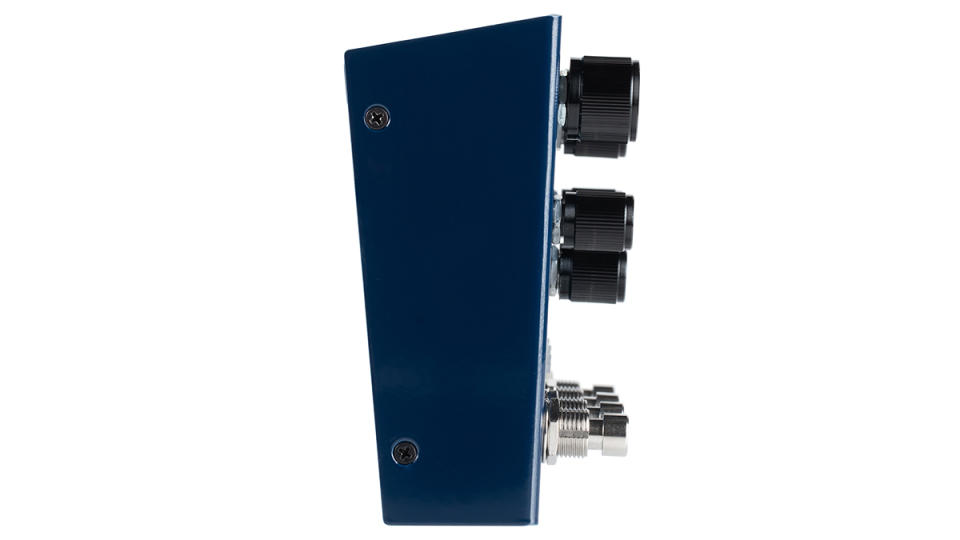
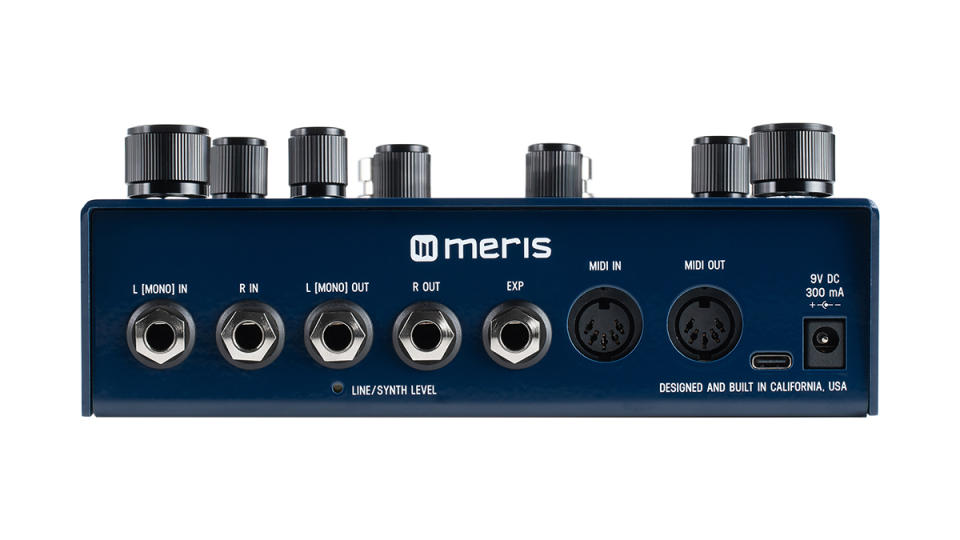
It’s also worth noting that, just like the LVX, the feature-packed pedal is seriously powerful, boasting an advanced ARM Processor and 24-bit AD/DA with 32-bit floating point DSP, as well as an analog signal path.
In operation, there are dedicated Predelay and Modulation knobs for embellishing effects, larger Decay and Mix controls, and two customizable knobs for adjusting favored parameters.
You won’t be surprised to hear it also offers all the connectivity options you’d need. That includes stereo input and output, MIDI In and Out, and an Expression Pedal jack for assignable parameter control.
So is Meris poised to overtake some of the big names in reverb? Well, like we said, the brand has a glowing track record, so we’re willing to bet it will put up quite the fight.
Realistically, its biggest competitors will be the BigSky and Boss RV-500, and while those might on paper offer more reverb types, Meris has once again created something that lets users intuitively dive into those algorithms and shape them into something far more than a simple reverb.
To that end, it looks like a one-stop reverb pedal more than suitable for shoegazey, ambient and post-rock genres, as well as studio soundtrack styles and beyond. Indeed, you’d need only listen to one of the many demos currently floating around to realize just how mind-blowing this pedal sounds.
The MercuryX is available now for $599.
Head over to Meris for more information.

